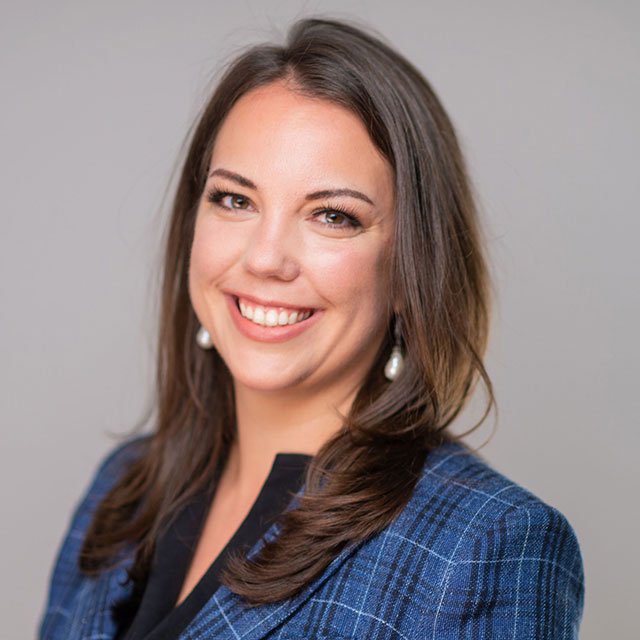What Wealthy Families Need From Advisors

Many women prefer to hire a female financial advisor. This is noteworthy progress. But the question remains: What will prompt more women to choose to be a financial advisor?
“It comes down to the huge shift in wealth — control of assets from men to women — that people have been talking about for many years,” says Chloe Wohlforth, a certified financial planner and partner in Angeles Wealth Management, in an interview with ThinkAdvisor.
Further, she says, “the fact that more young women are making significant headway [financially] will ultimately lead to more female advisors because there’ll be a greater need for them.”
Promoted to partner early this year, Wohlforth, 37, works with many “self-made” female entrepreneurs in their 30s “who make millions of dollars,” she says.
“Lots of women today are doing it on their own,” she emphasizes.
In the interview, the CFP also discusses her substantial work with multigenerational clients and how advisors can best bridge the generation gap when it comes to gifting and inheritances.
“The whole idea is to make sure that each generation really feels the advisor is working on their behalf,” she says.
Santa Monica, California-based Angeles Wealth Management focuses on ultra-high net worth families. Wohlforth’s clients, on average, have about $10 million of investable assets each.
At the firm for just four years and already one of its four partners, she previously was with the RIA Bridgewater Advisors and Chilton Trust Co.
She joined Angeles in 2019 as a managing director to expand its then-brand-new New York office.
Angeles Wealth and Angeles Investment Advisors, which serves institutional clients, have about $37 billion in assets under management. Of that, the wealth management affiliate manages more than $1 billion.
ThinkAdvisor recently interviewed Wohlforth, speaking by phone from her midtown Manhattan office.
Addressing a shift of mind that she suggests advisors adopt, she explains why being “a jack-of-all-trades” is “no longer feasible” for advisors.
“Advisors need to build a team of experts to help serve clients in the best possible way,” she maintains.
Here are excerpts from our interview:
THINKADVISOR: How would you categorize the majority of your clientele?
CHLOE WOHLFORTH: I work with people that are in their 30s who are self-made, and I work with multigenerational clients, starting with the matriarch and patriarch all the way down to the grandchildren.
A number of your clients are young women. Do women prefer to have a female advisor?
Sometimes. [Many] women clients I have are in their 30s and have made millions of dollars, whether in venture capital, private equity, startups that have done exceptionally well.
One entrepreneur was in her fourth startup, and then one of the four really made life-changing money for her.
We’re working with these very young self-made people. Lots of women today are doing it on their own. And they’re all extremely intentional about how they want to manage their money.
When do you expect to see a big increase in female financial advisors?
It comes down to the huge shift in wealth — the control of assets from men to [longer-living] women — that people have been talking about for many years now.
So, that transition of wealth to more women and the fact that more young women are making significant headway [financially], in whatever industry they work in, will ultimately lead to more female advisors because there’ll be a greater need for them.
What are the issues of multigenerational clients?
One is that different generations might have different ideas of how they want to invest, what types of companies they want to invest in and how much risk they want to take.
There are also issues of trust and [on the part of the older gen] giving away control of the assets.
Please explain the “trust” issue.
Right now, the lifetime gift tax exclusion is extremely high [$12.92 million in 2023] per person. That really leads to some significant during-life gifting for clients who can afford it.
This takes a lot of trust-building and communication between generations. It’s about making sure the first generation feels they can make these gifts and that the next gen and the one after are educated in best practices, and that their voices are heard about what they want to accomplish and what their ideal portfolio would look like.
It’s all about [ensuring] that with every generation, we understand the mandate.
But often the older gen doesn’t want to tell their children the size of their estate. How can the younger gen trust the elder gen if the family is obviously wealthy but the parents won’t reveal their future inheritances?
That’s where the advisor comes into play and why relationship-building with the advisor is so critical for the second generation.
Because then it’s less about what’s being transferred and more about staying focused on the task at hand — knowing that someone has their finger on the pulse of everything and that all the right people are in place: the financial advisor, tax advisor, estate attorney.
It’s about the second gen knowing that the advisor and the first gen have put together a team to make sure everybody’s best interest is taken into consideration.




